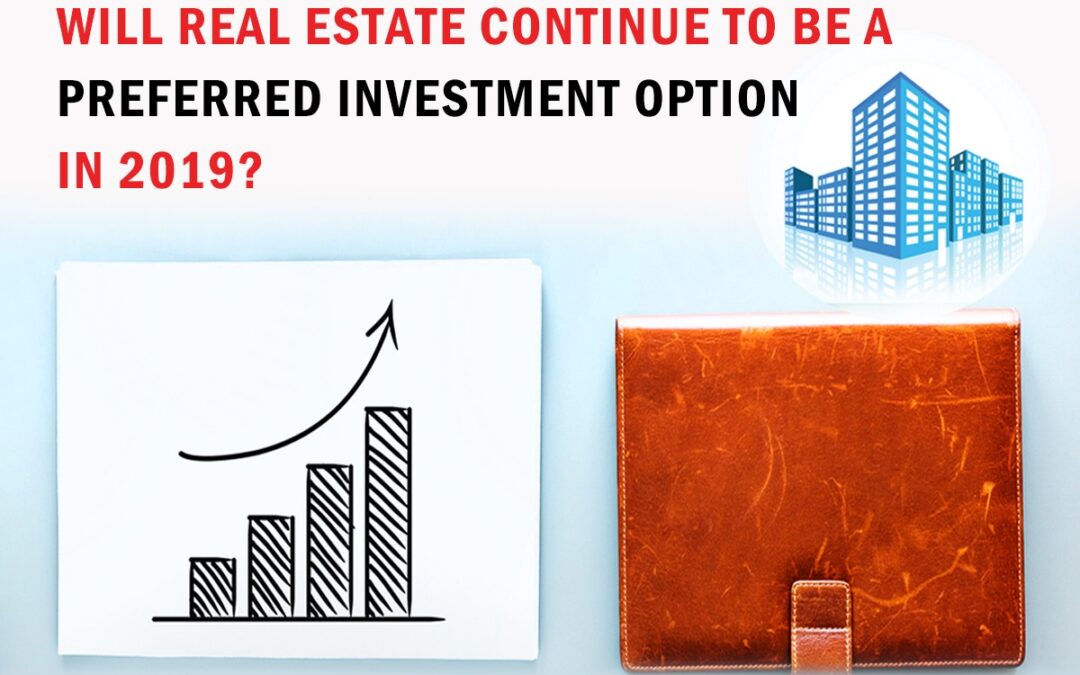Real Estate as a preferred investment option
As the year 2018 is about to end, it is perhaps the most probable question on real estate buyers’ mind. So, will Real Estate offer profitable Return on Investment (ROI) in 2019?
The Indian real estate sector has witnessed volatility and a demand crunch over the last few years. The real estate industry is going through a lull. The good news is that we think that 2019 could be the year that the property market bounces back with all the major policies had been implemented in the last five years.
As per experts, the real estate sector has witnessed a fast growth with the rise of demand for residential as well as commercial projects in the recent times. Private equity investment in real estate is also estimated to grow in the coming years. The recent Real Estate policy level reforms (RERA), Goods and Services Tax (GST) and Real Estate Investment Trust (REIT) is streamlining the industry and is expected to provide stimulus to its growth.
Home Loan interest rates
Today’s market can be termed as a buyers’ market as there are more supply than demand. In addition, the low home loan rates coupled with the various Government incentive schemes like PMAY and Apun Ghar makes the marketing very friendly to the buyers. These schemes give further discount on the monthly EMI for the buyers, which in turn makes real estate affordable. Experts believe that the return on investment (ROI) will be more than the investing amount in the property from a long-term investment perspective.
Real Estate vs. Other investment avenues
The real estate section, unlike the other investment options like Gold, Commodity and Equity Markets, is not related to overseas global economic factors. It is largely insulated from the global factors which are less in our control. A trade war between two countries or a crude oil crisis for instance, is less likely to affect the real estate market. So it is not as volatile as the other assets such as gold, currency and equity markets.
Real estate is highly dependent on consumer spending in the domestic economy. It is an asset that is tangible. It can not only give long term financial benefits, but also can be used to procure business loans to increase returns through other assets and businesses. Moreover, it can also give regular returns consistently in terms of rent income.
Return on property investment
Apart from being a highly tangible physical asset, Real Estate investing has tax benefits that increases your overall ROI. A physical asset like a home has a cultural relevance in terms of security. By its very nature, it is bought from a long term perspective. The anxiety of immediate or medium term returns is not seen among the real estate buyers. This buyer attitude of not wanting to liquidate a real estate makes the property investment less vulnerable to speculations. Real estate investment therefore is more stable than other investment options.
We need to be judicious in terms of choosing the builder and the location of the property. It should have a better chance of appreciation to become a secure income generating asset for the security of the investors’ future.
Conclusion
One of the biggest hindrance is the 12.5% GST for the buyers and 5% on the stamp duty and registration. Even GST rate of 28% on cement increases the price of the property. Revising the rates of the Goods and Services Tax (GST) on various segments connected to the real estate industry, could help both, consumers and developers. With the GST council meetings underway, as we write, the developer community is hopeful that GST rates will be substantially reduced by the government. It will help in boosting the demand for housing and the overall GDP of the country. It will make 2019 a great year for real estate investment.

